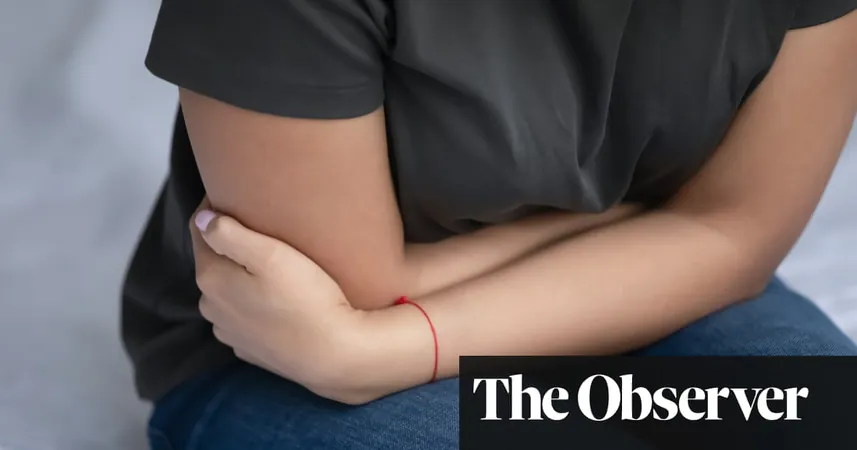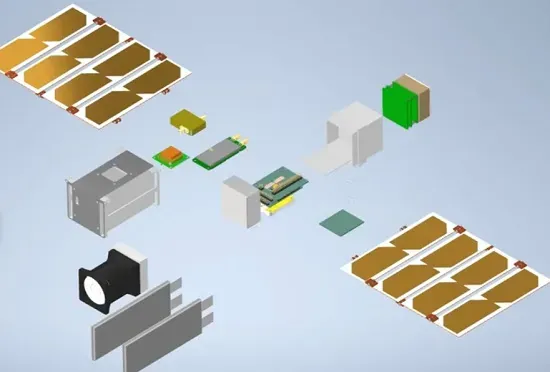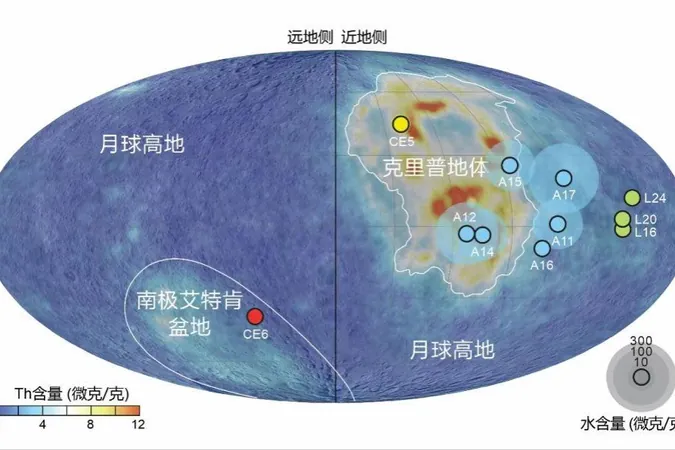
Transforming Endometriosis Pain: How Your Diet Could Be the Key to Relief!
2025-04-05
Author: Arjun
Introduction
A groundbreaking international study has revealed that making certain dietary changes could significantly alleviate the pain associated with endometriosis for nearly half of those affected. This extensive survey, involving 2,599 participants from over 51 countries, found that 45% of individuals who eliminated gluten and dairy reported a noticeable improvement in their discomfort.
Impressively, the findings showed that cutting back on caffeine helped 43% of women, while a staggering 53% who reduced alcohol consumption also experienced relief.
Expert Insights
Philippa Saunders, the study's senior author and a professor at the University of Edinburgh, expressed excitement about these findings, stating, "We are on the cusp of something significant regarding how diet affects endometriosis symptoms." This is an empowering revelation for many women who feel overwhelmed by the condition, with endometriosis affecting about one in ten women of reproductive age in the UK, often leading to years of untreated pain and frustration due to insufficient research and awareness.
Understanding Endometriosis
Endometriosis occurs when tissue similar to the lining of the womb grows in other areas of the body, which can cause debilitating pain, especially during menstruation. Traditionally, treatment options have been limited to surgical interventions or hormonal contraceptives, which many women find undesirable due to side effects. Alarmingly, it often takes an average of almost seven years for a woman to receive a proper diagnosis.
Dietary Impact and Gut Health
The recently published study in JAMA Network Open has drawn attention not only to the impact of dietary choices but also to the potential role of gut bacteria in affecting endometriosis symptoms. Changes in the gut microbiome, spurred by the elimination of gluten and dairy, may contribute to reduced pain levels.
Additionally, caffeine reduction is thought to improve sleep quality, minimizing pain perception, and alcohol may exacerbate symptoms due to its estrogen-like effects.
Processed Foods and Pain Relief
The research highlighted that participants who cut processed foods—including ready meals and sugary treats—reported relief from their symptoms, with almost 40% experiencing improved pain control. Strikingly, one-third of respondents noticed pain relief after eliminating garlic and onion, foods notorious for causing bloating.
Expert Recommendations
Experts caution that while these findings are promising, individuals should consult their healthcare provider before making drastic changes to their diet. The need for further rigorous studies, including randomized dietary trials, is evident to establish a causal relationship between diet and endometriosis pain management.
Jo Hanley from Endometriosis UK noted the anecdotal success stories tied to dietary changes while stressing the necessity for high-quality research. She recommends an anti-inflammatory diet rich in fruits, vegetables, whole grains, and healthy fats, while avoiding sugars, unhealthy fats, and processed meats that may contribute to inflammation.
Conclusion
As research continues, the voices of those living with endometriosis are becoming increasingly significant in understanding how dietary adjustments could offer viable relief. Ying Cheong, a reproductive medicine professor, emphasized that more clinical research is essential to validate these preliminary findings.
As awareness surrounding endometriosis grows, many women are turning toward dietary adaptations as a potential path to reclaim their health and well-being amidst the challenges of this complex condition.
In the pursuit of pain relief, perhaps the answer lies in the food we consume. Stay tuned—your next meal might be the key to reducing the debilitating symptoms of endometriosis!





 Brasil (PT)
Brasil (PT)
 Canada (EN)
Canada (EN)
 Chile (ES)
Chile (ES)
 Česko (CS)
Česko (CS)
 대한민국 (KO)
대한민국 (KO)
 España (ES)
España (ES)
 France (FR)
France (FR)
 Hong Kong (EN)
Hong Kong (EN)
 Italia (IT)
Italia (IT)
 日本 (JA)
日本 (JA)
 Magyarország (HU)
Magyarország (HU)
 Norge (NO)
Norge (NO)
 Polska (PL)
Polska (PL)
 Schweiz (DE)
Schweiz (DE)
 Singapore (EN)
Singapore (EN)
 Sverige (SV)
Sverige (SV)
 Suomi (FI)
Suomi (FI)
 Türkiye (TR)
Türkiye (TR)
 الإمارات العربية المتحدة (AR)
الإمارات العربية المتحدة (AR)